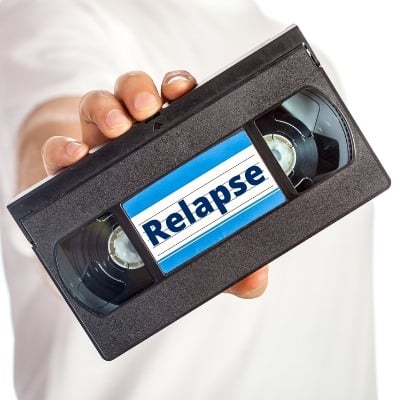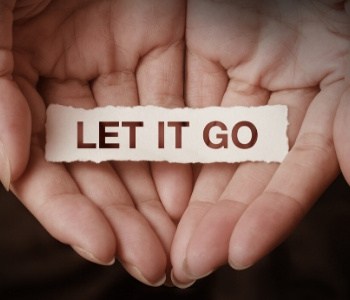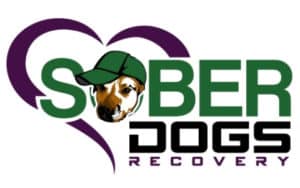Almost everywhere we go alcohol is present. Out to dinner, late-night work meetings, friends BBQ, baby shower, wedding, birthday parties, and holidays all involve alcohol.
After a long day of work, many people have a drink with dinner, on weekends people look forward to a few beers at the ball game. As a sober person, we don’t have the luxury of having a few cocktails after a tough day. We have to find other and more efficient ways of coping with life. The fact is, that nightcap doesn’t actually relieve any stress, especially for us alcoholics. It just leads to more problems.
Learning how to cope with life’s problems without drugs and alcohol is not a simple task, but it can be done. I drank for years and alcohol was a necessary prerequisite to every social event no matter what it was. When I got sober I had to learn how to cope with life and attend social events without drugs and alcohol.
How to Cope with Life Without Alcohol
For us non-drinkers, we need to use other coping skills to get through life without alcohol.
Here are 12 ways to cope with life without alcohol:
- Find Your Outlet In Life
- Pursue Your passion
- Learn To Accept The World As It Is
- Become Happy and Accepting of Yourself
- Understand Why You Used Alcohol In The First Place
- Plan Ahead for Social Events
- Play The Tape All The Way Through
- Work on Your Physical Health
- Build and Use Your Support Network
- Let Go of Expectations
- Give Back/ Volunteer/ Altruism
- Playing With and Use Your Pets as Support.
I drank for over 15 years and when I got sober I expected all of these coping skills to work and be present within me immediately. Learning to live a happy healthy life without alcohol takes time. We didn’t become alcoholics overnight and we’re not gonna fix everything overnight. It takes time to learn how to live life without alcohol.
1. Find Your Outlet In Life
We all need an outlet in life, a release. Typically this is something that you enjoy doing that helps release some pent up energy. Many of us used alcohol as our outlet for years. The problem with using alcohol as an outlet is that it doesn’t release that pent up energy, it actually makes it worse. It may release some frustration for a few hours but when we wake up, we’re in a worse place.
A positive outlet should be something that makes you feel better when you’re doing it. This can be:
- Hiking
- Mountain climbing
- Writing
- Paintball
- Coaching the kids’ sports team
- Drawing
- Painting
- Punching a punching bag
- Something as simple as taking the dog to the park

Anything that helps you get some energy out, both physical and mental energy. Most of us think of an outlet as a physical thing, I know I typically do, but it doesn’t have to be. Writing is a huge outlet for me. When I sit down and write an article like this I feel engaged, enthusiastic, excited, accomplished, and mentally drained when I’m done.
Your outlet can be one of these things or something totally unique to you. Getting some excess energy out helps us stay calm and relaxed when dealing with life’s issues.
2. Pursue Your Passion
This often goes hand in hand with number 1. Your outlet and your passion may be the same thing, but it doesn’t have to be. If you absolutely love mountain climbing then that might be both your outlet and your passion.
Pursuing a passion is a great way to feel a good sense of self-worth and love for yourself. Many of us who drank heavily, drank because we were ashamed or embarrassed about some aspect of our life. We had and maybe still do have low self-esteem. Alcohol was our cure for a while until it stopped working. Now we need to find things to help build that worth back up. Finding a passion is a great way to do that.
For me, this was starting and creating soberdogs. My passion is animals and sobriety. I created a website and social community around people in recovery and named it soberdogs as a tribute to my dogs who I love and who help me stay sober every day. Soberdogs gives me a sense of purpose and a positive task to put my energy into on a daily basis. How To Find Your Passion In Recovery.
3. Learn To Accept The World As It Is
Acceptance is a big part of 12-step programs and many other self-help programs. One of the main reasons so many of us use drugs or alcohol is we can’t or don’t want to accept some part of the world.
When we can learn to accept the world and other people as they are we become much freer. The reality is we can’t change 99% of things going on in our world. We can’t change other people, the weather, traffic, accidents, politics, and pretty much everything else going on. We can change our actions and our attitudes about everything. When we accept that we can’t change these outside circumstances we learn to live in a much more peaceful life.

A person I know very well lives her life trying to change and control every person and situation. She is in a constant state of anxiety, frustration, and let down because everybody and everything is not conforming to her way. Any slight deviation in her day throws her totally off. During the rare times when she lets go of the vise grip of control, she is a much more peaceful person.
“Acceptance is the answer to all my problems today”.
-AA Big Book
4. Learn to Be Happy and Accepting of Yourself
I can’t tell you how many times I drank or used drugs because of some personal flaw or mistake I made. This all came back to me not loving or even liking myself. I looked at every little flaw and mistake and totally avoided all the positive attributes I have. These flaws may be low self-esteem, past trauma, current financial situations, relationships, or any other aspect of ourselves we don’t like.
If we are unhappy in a relationship we can accept the fact that we are unhappy and get out of the relationship. This is where action and acceptance combine. Same with financial situations. I had to accept that I was in massive debt after years of addiction. But once I accepted that and stopped avoiding the truth I was able to look at it and start living in the solution.
Accept That Things Will Be Uncomfortable
Certain situation are going to be uncomfortable. Instead of dreading them and dwelling on them, I try to accept and embrace them.
When you go to a social event or family party and you’re the only non-drinker it may be awkward. This is ok. I used to dread this, now I embrace it and use it as a learning experience. We grow in uncomfortable situations. I mentally prepare myself for some uncomfortable questions and feelings.
5. Understand Why You Used Alcohol In The First Place

I have spoken with and worked with thousands of addicts and alcoholics at every different stage of addiction and recovery. Every single one of us has some issue or issues fueling our addiction. For some, it’s past trauma, maybe low self-esteem, or anger and resentment towards someone who did us wrong in the past.
Getting to the root of why we want to escape reality so bad is a huge first step to living a happy, healthy, alcohol-free life. This may take time and some deep internal thought. You may have to delve into your past or face a trauma that still affects you, but I can assure you after you get through the hard part of delving into these issues, once you get to the other side it’s a beautiful feeling.
6. Plan Ahead For Social Events
I do this every time I’m going somewhere where alcohol will be present. Anytime there is a family party, wedding, or any social event I always do a quick pre-plan of the situation.
- Plan your transportation. If you can drive yourself do it. Have an escape plan for if/when you get triggered to drink.
- Use your Support Network before, during, and after the event. Call a friend if you feel awkward or uncomfortable or call your sponsor.
- Mentally prepare for awkward situations and uncomfortable small talk.
- Prepare yourself to see others drinking alcohol.
- Don’t feel bad if you leave early. If you feel triggered or really uncomfortable just leave.
“I would rather have my friends and family mad at me for 5 minutes because I left the party without saying goodbye, instead of being mad at me for months or years because I relapsed and went on a 3 month binge.”
7. Play The Tape All The Way Through

One of the counselors at my outpatient rehab told us this saying and explained it. I love this and use it all the time whenever I feel like drinking or drugging.
When we get a craving for alcohol or drugs we think about using the drug and the feeling of pleasure we get for a few minutes maybe a few hours after. That’s as far ahead as we usually think. We always think I can just have a few beers today and that will be it. When I play the tape all the way through I look at the real situation.
Here Is How I Play The Tape All The Way Through
I will have a few beers today (More than a few, I never just have a few). I will feel guilty and have a hangover in the morning. When I have a hangover and feel like crap I know more alcohol will numb the pain and guilt I’m feeling. I will drink all day tomorrow and probably go get hard liquor to get the effect I’m seeking. When I binge all day tomorrow I’m gonna really hate myself and feel shame, resentment, and remorse for my bad decisions and end up drinking all weekend. When I drink, it always leads me to harder stuff like cocaine and painkillers. If I start drinking I will end up buying drugs and be off to the races for who knows how long destroying my life and everything I worked so hard for in sobriety.
8. Work on Your Physical Health

A great way to calm all the nerves and reduce stress and anxiety is to exercise. Exercise helps me reduce stress, stay healthy, get the anger out, and feel accomplished afterward. Lots of people who are in recovery get into some type of intense physical programs like CrossFit or Ju-Jitsu. These demanding physical programs are an awesome way to get your body in shape and keep your mind happy and healthy. Exercise releases endorphins and always makes me feel better during and after.
9. Build and Use Your Support Network
The feeling of asking for help or being vulnerable can be alien to many of us, but for people in recovery, we need to learn to embrace this. There is plenty of things I can’t handle alone and I need to rely upon and use my support network.
Your support network may be family, friends, others in recovery, 12-step meetings, therapists, or anyone you know that will be there for you.
People in the 12-step programs I attend have been telling me since day one, “Build up an army of positive support, that way you always have plenty of people to call during any struggle”. Over 2 years, I have steadily added numbers to my phone and built wonderful relationships with positive people who are there for me through thick and thin.
10. Let Go of Expectations
This ties in with acceptance. We all have certain expectations of how things will go and how they will play out. I always have expectations of how others should be doing things and how they should act. Just like acceptance I can’t control anyone but myself. So having expectations for how other people or other situations are gonna play out is a recipe for disaster.
The world is constantly changing and there are so many factors and things I can’t control. If I play a scenario in my head and expect it to work out exactly as I want I am always gonna feel let down.
Letting go of these expectations is a huge burden lifted off my shoulders. This also goes for expectations of myself. I can often get so angry at myself for not doing or acting in some way I planned out in my head. When this happens I need to accept that it didn’t go the way I planned and keep moving forward and learn from it not dwell on it.
11. Give Back/Volunteer/Altruism
I heard someone say “The best way to get out of my own negative thoughts is to stop thinking about myself and start thinking about others”. This is so true and accurate. Whenever I’m struggling with something or having bad thoughts about something the best way for me to get out of my own self-pity party is to go out and help someone else.
This may be as simple as holding the door open for someone or having a nice conversation with your neighbor. Just getting out of my own way and thinking about others first, always helps put life into perspective for me.
12. Play With and Use Your Pets for Support
Animals are a great way to help us cope with struggles in life. They’re an ear that will always listen and no judge us.
When humans pet a dog it typically triggers the release of the bonding hormone oxytocin, also known as the love hormone. Bonding with a canine can also lower your blood pressure and heart rate. Studies have shown that playing with or petting an animal can decrease the production of the stress hormone cortisol. (source)
Animals and pets are a great way to boost your mood and cope with life. I know my dogs always put a smile on my face!
Articles
A common question many people in recovery from drugs get asked is "Why can't you have a drink?" or "If alcohol wasn't your drug of choice why can't you drink?". Everyone has their own path in...
A person in active addiction will do things that cross their own moral boundaries. On the inside, they will feel guilty and ashamed of what they are doing but the pull of addiction and the crippling...


